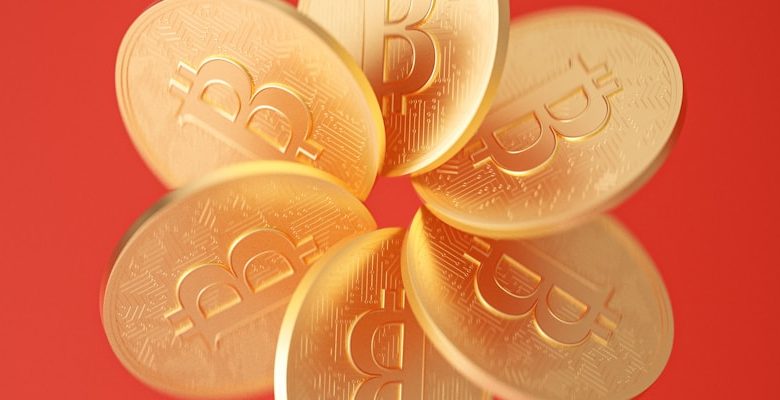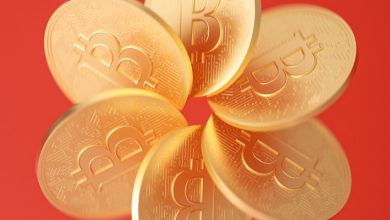What is a Blockchain Oracle? Bridging the Gap Between On-Chain and Off-Chain Data

- Understanding the Role of a Blockchain Oracle in Decentralized Systems
- The Importance of Reliable Data Feeds in Smart Contracts
- Exploring the Functionality of Oracles in Blockchain Technology
- Bridging Real-World Information with Blockchain Applications
- Challenges and Solutions in Implementing Oracle Services
- Enhancing Transparency and Trust with Oracles in the Blockchain Ecosystem
Understanding the Role of a Blockchain Oracle in Decentralized Systems
Blockchain oracles play a crucial role in decentralized systems by acting as intermediaries that provide off-chain data to on-chain smart contracts. They serve as bridges that enable blockchain networks to interact with external sources of information, such as real-world events and data feeds.
By facilitating the flow of external data onto the blockchain, oracles expand the capabilities of smart contracts and make them more versatile and powerful. This enables decentralized applications (DApps) to access and utilize real-time information that is essential for their operation.
Blockchain oracles ensure the accuracy and reliability of off-chain data by using various mechanisms, such as data aggregation, consensus algorithms, and reputation systems. These mechanisms help mitigate the risk of data manipulation or inaccuracies, thereby enhancing the trustworthiness of the information provided to smart contracts.
Overall, blockchain oracles play a critical role in bridging the gap between on-chain and off-chain data, enabling decentralized systems to access external information securely and efficiently. Their presence is essential for the continued growth and evolution of the blockchain ecosystem.
The Importance of Reliable Data Feeds in Smart Contracts
Reliable data feeds play a crucial role in ensuring the accuracy and trustworthiness of smart contracts. In the context of blockchain oracles, these data feeds act as the bridge between on-chain and off-chain data sources, providing the necessary information for smart contracts to execute properly.
Without reliable data feeds, smart contracts may be vulnerable to manipulation or inaccuracies, which can have serious consequences for all parties involved. Therefore, it is essential to use reputable data providers and establish secure connections to ensure the integrity of the data being fed into the smart contracts.
By leveraging reliable data feeds, smart contracts can access real-time information from external sources, enabling them to execute actions based on accurate and up-to-date data. This functionality is particularly important in industries such as finance, supply chain management, and insurance, where the validity of data is critical to the success of the contract.
Exploring the Functionality of Oracles in Blockchain Technology
Exploring the functionality of oracles in blockchain technology is crucial to understanding how they bridge the gap between on-chain and off-chain data. Oracles serve as trusted sources of external information that can be integrated into smart contracts on the blockchain. By providing real-world data, oracles enable smart contracts to execute actions based on external events or conditions.
Blockchain oracles come in different forms, including software-based oracles, hardware oracles, and consensus-based oracles. Software-based oracles rely on APIs to fetch data from external sources, while hardware oracles use sensors or IoT devices to provide data to the blockchain. Consensus-based oracles aggregate information from multiple sources to ensure accuracy and reliability.
Oracles play a critical role in decentralized applications (dApps) by enabling them to interact with the external world. For example, oracles can be used to trigger payments based on real-world events, such as the outcome of a sports game or the weather conditions in a specific location. Without oracles, smart contracts would be limited to executing actions based only on data available within the blockchain.
Bridging Real-World Information with Blockchain Applications
Blockchain oracles play a crucial role in bridging real-world information with blockchain applications. They act as intermediaries, providing off-chain data to on-chain smart contracts, thus enabling them to interact with external systems and make informed decisions based on real-time data.
By connecting blockchain networks with external sources such as APIs, IoT devices, and other data feeds, oracles expand the capabilities of smart contracts beyond the confines of the blockchain. This integration allows for a wide range of use cases, from decentralized finance (DeFi) applications to supply chain management and beyond.
One of the key challenges in utilizing blockchain oracles is ensuring the accuracy and reliability of the data they provide. To address this issue, various approaches such as data aggregation, consensus mechanisms, and reputation systems are being developed to verify the integrity of off-chain data before it is integrated into the blockchain.
Overall, blockchain oracles serve as a critical link between the digital and physical worlds, enabling the seamless exchange of information and facilitating the adoption of blockchain technology in a wide array of industries.
Challenges and Solutions in Implementing Oracle Services
One of the main challenges in implementing Oracle services is ensuring the security and reliability of the data being transferred between on-chain and off-chain sources. This is crucial to maintain the integrity and trustworthiness of the blockchain network. To address this challenge, developers can utilize cryptographic techniques to secure the data transmission and implement multi-signature schemes to verify the authenticity of the data.
Another challenge is the scalability of Oracle services, as the demand for real-time data on the blockchain continues to grow. To overcome this issue, developers can explore different architectural designs, such as using off-chain aggregation or parallel processing techniques. By distributing the workload across multiple nodes, the system can handle a larger volume of data without compromising performance.
Interoperability is also a significant challenge when implementing Oracle services, as different blockchains may use different protocols and standards for data transmission. Developers can address this challenge by creating adapters or middleware that can translate data formats between different blockchains. Additionally, standardization efforts within the blockchain community can help streamline the integration process for Oracle services.
Ensuring the transparency and auditability of data on the blockchain is another key challenge in implementing Oracle services. By using smart contracts and oracles that provide verifiable proofs of data authenticity, developers can enhance the trustworthiness of the data being transferred between on-chain and off-chain sources. Regular audits and transparency reports can also help build confidence in the integrity of the data being used in blockchain applications.
Overall, while there are several challenges in implementing Oracle services on the blockchain, developers can leverage cryptographic techniques, scalability solutions, interoperability standards, and transparency measures to address these issues effectively. By overcoming these challenges, Oracle services can play a crucial role in bridging the gap between on-chain and off-chain data, unlocking new possibilities for decentralized applications and smart contracts.
Enhancing Transparency and Trust with Oracles in the Blockchain Ecosystem
Enhancing transparency and trust with oracles in the blockchain ecosystem is crucial for ensuring the reliability of off-chain data that is brought onto the blockchain. Oracles play a vital role in bridging the gap between on-chain and off-chain data sources, providing a mechanism for smart contracts to interact with external information in a secure and decentralized manner.
By utilizing oracles, blockchain applications can access real-world data such as stock prices, weather conditions, sports scores, and more, enabling a wide range of use cases across various industries. However, the integrity of this data is paramount to the success of blockchain-based systems, as any inaccuracies or manipulations could lead to erroneous outcomes and potential financial losses.
To address these concerns, developers and users must carefully select reputable oracles that have established a track record of reliability and accuracy. Additionally, implementing multi-sourcing techniques can help mitigate the risk of single points of failure or malicious actors compromising the data feed.
Furthermore, transparency in the oracle’s operations, data sources, and data validation processes can instill trust in the blockchain ecosystem. Auditable records and verifiable proofs of data authenticity can provide assurances to stakeholders that the information being utilized by smart contracts is legitimate and untampered.
Overall, by prioritizing transparency and trust in oracle solutions, blockchain projects can enhance the integrity of their data feeds and build confidence among users and participants in the ecosystem.



